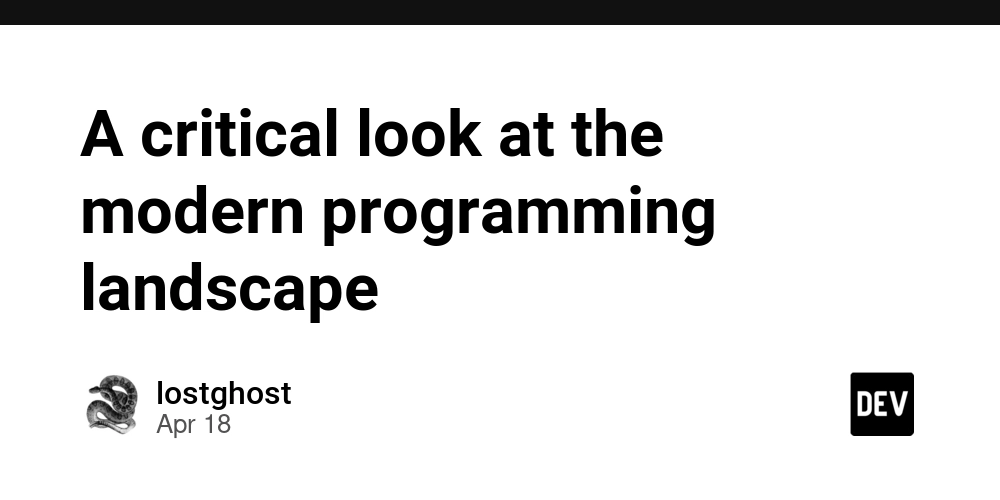Dev
18h
11

Image Credit: Dev
A critical look at the modern programming landscape
- The modern programming landscape is evolving rapidly, influenced by languages like Lisp, Smalltalk, io, and Unison.
- Current development in programming seems confined to a space limited by past abstractions, prompting a call for revolutionary progress over evolutionary changes.
- Challenges with managing state in programming, the complexities of distributed programming, distributed state, concurrency, tree structures, and text files are analyzed.
- Issues like global vs. local state handling, distributed system design, stack-based concurrency control, and the limitations of file systems as abstractions are discussed.
- Advocacy for languages to facilitate better state management, seamless remote function calls, and deeper integration with IDEs for enhanced programming experiences is highlighted.
- The need for languages to support clear expression of state, simplify distributed programming, and enable meaningful diffs and sharing of objects is emphasized.
- Proposals for improving concurrency, leveraging tree structures to model complex relationships, and bypassing text-to-binary transitions in programming are put forth.
- The article concludes by urging the programming community to consider ambitious ideas that may have been ahead of their time and push for a new generation of programming languages.
Read Full Article
Like
For uninterrupted reading, download the app